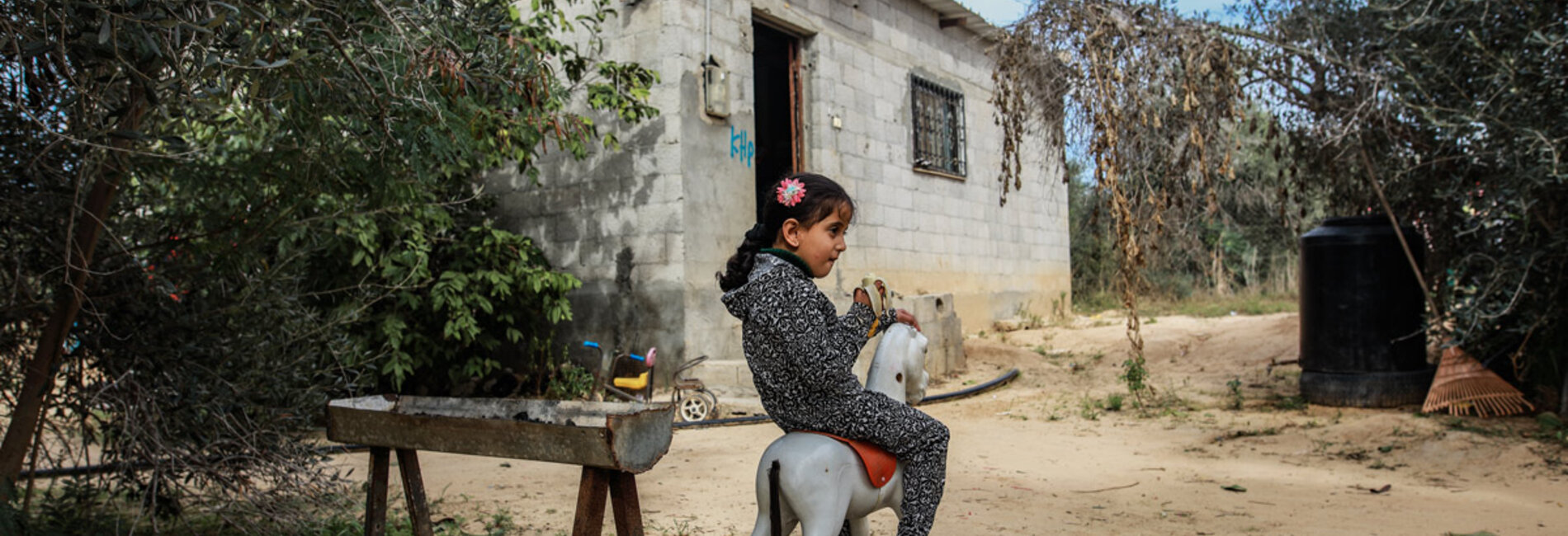Fighting malnutrition in Gaza
An occupied Palestinian territory Humanitarian Fund success story
Leen is now a healthy, active little girl, thanks to her resourceful parents and some very timely humanitarian support.
At the age of three, Leen Abu Hajras was identified as suffering from severe malnutrition. This is rather common in the occupied Palestinian territory, especially in Gaza, where she lives. Children generally have been identified as more vulnerable than others to malnutrition, which poses significant challenges to health and wellbeing.
Even though Gaza is under Israeli blockade, food is available in the market. But for many, it is unaffordable. Job opportunities in this coastal enclave are limited, especially for women. Leen’s mom, Islam, has not been able to find one. Leen’s dad, Mohammed, is the sole breadwinner of the family; he works as a cleaner on a part-time job, struggling to provide for Islam, Leen, and Leen’s two sisters. “My family hasn’t had fruits and vegetables for so long,” he told us. “I don’t remember the last time my daughters had a nutritious meal. For many days, our fridge has been empty, and my children stayed hungry all day.”
Their home is small. It is made of uncovered bricks, and an iron sheet is used as a roof. When hostilities escalated in May 2021, this precarious shelter was damaged, and the entire family was traumatized. Their situation further worsened, and the girls started missing meals. The more Leen’s medical situation deteriorated, the more stressed her parents became. They were burdened with loans for medical expenses they just could not afford.
Islam and Mohammed were finally able to improve their family’s situation thanks to help from the Catholic Relief Services (CRS), supported by the occupied Palestinian territory Humanitarian Fund (oPt HF). They were among 1,067 people identified as eligible for a two-month cash assistance that would allow them to meet basic needs following the devastating armed fighting. Each family received ILS 645 (about US$200) per month.
“We were filled with joy when we got the message confirming our eligibility,” Mohammed recalls. “My wife and I started thinking what we would buy. We needed to carefully prioritize.” Indeed, the timely provision of cash, as opposed to other modalities of assistance, allowed the families to tailor their own plans based on their respective diverse needs.
For the first time in many months, Mohamed bought fresh, varied and nutritious food for his family. He and Islam could finally cover the medical expenses for Leen, who shortly thereafter recovered from her condition. “What makes me happy the most,” Mohammed concluded, ”is watching Leen run and play with her peers without any health concerns.”











